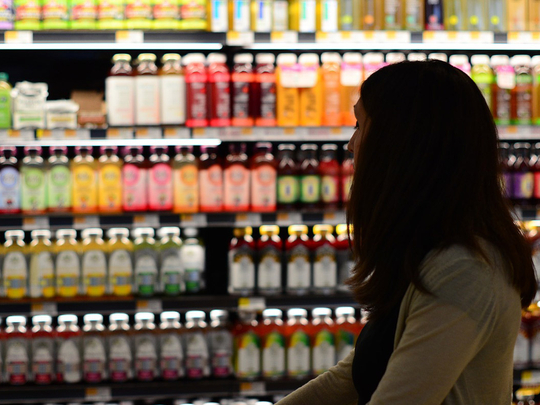
Tossing out milk after it’s expiry date seems like the right thing to do. But what about items, like canned goods, that seem fit to consume even after such suggested guidelines? Are expiry dates a myth? Gulf News readers debate
It has nothing to do with safety
All those dates stamped on the food we buy don’t necessarily have anything to do with the safety of its consumption. We might see one of the following dates stamped on a product we buy: Sell-by date: This date is actually meant for retailers, not consumers. It instructs retailers how long to display the product on store shelves and is for marketing purposes. The best-by date is the date at which the manufacturer believes the food will reach its peak of freshness or flavour. Whereas, the use-by date represents the last day of peak quality. It is the only expiration date that’s relevant to home storage or use. Hence, printing sell-by dates are mandatory by law as well as to maintain freshness of the product.

Expiration dates are determined during storage studies, also known as stability tests. Normally, a company’s research and development team will run storage studies on newly developed products.
However, producers and consumers need to be responsible. Foods that are close to, at or beyond the “best-before” date are often discarded by retailers and consumers, which contributes to food waste 1.3 Billion tonnes/year globally.
Mr Ajit Raj Mainali, Business Analyst in a food manufacturing company based in Dubai
No guarantees after expiry date
Working in the field of food production, there are surely some products that are fine to consume after the expiry dates, however, the quality wouldn’t be the same. Meaning to say that you wouldn’t get the right feel of the product when you eat it. Also to point out that the same exact product could have different expiry dates based on the region it is being sold in that can be due to climate.
Most of the times food manufacturers print these dates because of governmental regulations or because the retail industry wants it to be there.

Expiration labels are only an indication of product’s freshness and doesn’t indicate how safe the food is to eat. It means that the company or manufacturer doesn’t guarantee the standard of the brand quality once the expiry date has been exceeded, for attributes like taste, colour etc. The way it is determined is through experimentation in a lab where the food is left for months and then assessed by a highly trained panel of experts and give a food grade to it. When the product reaches a certain grade that , that’s where the line is drawn and said to be it’s expiry.
Mr Hamdan Shahid Afridi, Demand planner in a food manufacturing company based in Dubai
It is all about mass sales
I personally condemn the idea of best before, buy before and use before dates.
I always told myself and tried to convince others too, that writing expiry dates on certain food items is just to get away with the bulk production and sell at throwaway prices to make maximum profit.
I have had a personal experience of buying a canned food item without checking the expiry date. When I served the guest without tasting it was sour and tasteless. Immediately I checked the expiration date according to which there was one more month until it expires. Just as we say little knowledge is dangerous so is the myth about expiry dates and shelf life. Sell by, use by, best before — almost none of these dates indicate the safety of food, and, they are not regulated in the way many people believe.

I think that people should use their instincts and senses when determining what is safe to eat. All we need is to analyse our skills and keep our eyes wide open with focus on society changing trends and sale announcements on fresh foods.
Ms Anjum Hasan, Biology teacher based in Sharjah
Poll results
Do you follow expiry dates on food products?
Yes: 88%
No: 12%







